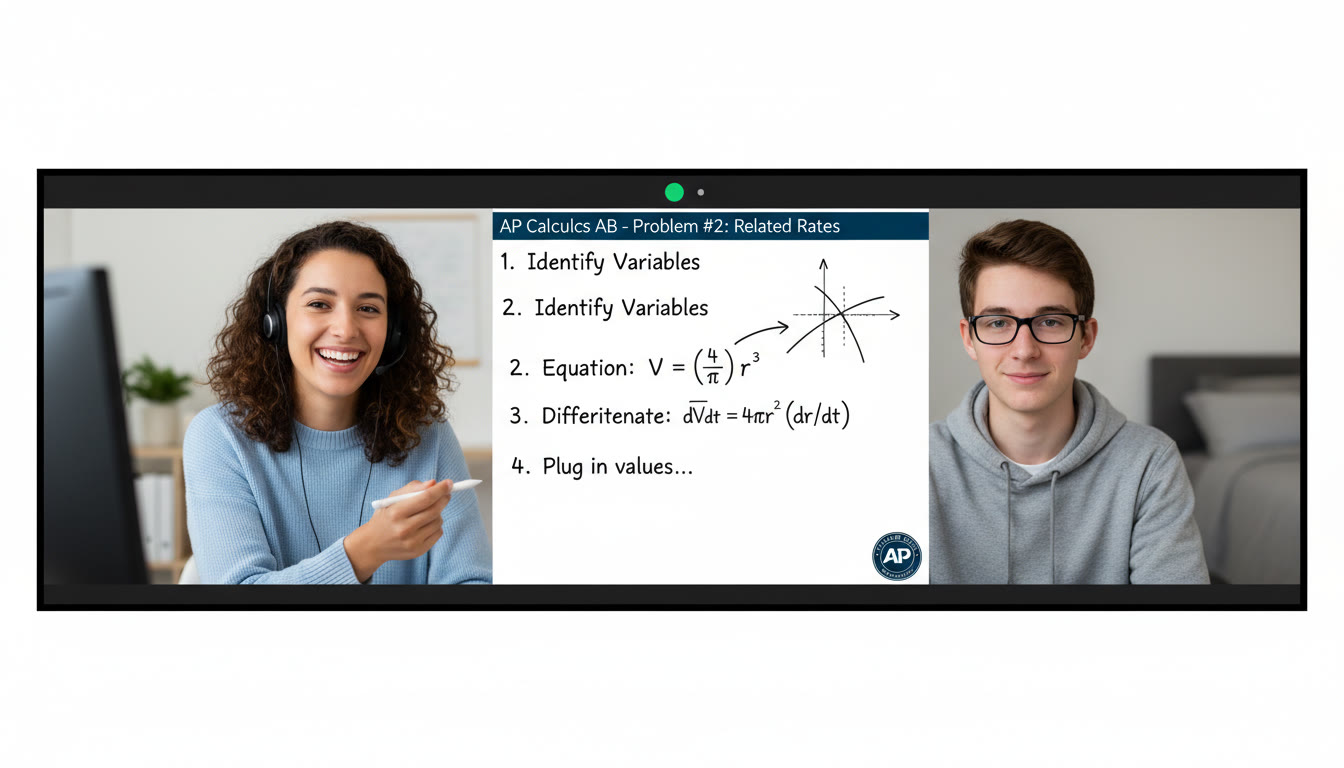Welcome — A Parent’s Guide to AP Success in Saudi, Qatar, Kuwait and Bahrain
If you’re a parent reading this, you already know two things: your teen is bright, and the path to international university options can feel a little mysterious. The Advanced Placement (AP) program is an opportunity — a way to stretch academically, earn potential college credit, and strengthen university applications. But AP also brings questions: Which courses matter? How do tests fit local school calendars? What’s the best way to study from here in the Gulf? This playbook is written for you — practical, region-aware, and full of realistic steps you can take with your teen so AP season feels manageable, purposeful, and even energizing.
Why AP Matters — Beyond Scores
AP classes give students the chance to tackle college-level material while still in high school. For many families across Saudi Arabia, Qatar, Kuwait and Bahrain, AP helps with three things parents care about most:
- Academic preparedness: AP shows universities that a student sought challenge and succeeded.
- Credit and placement: Strong AP scores can translate into college credit or advanced placement, potentially saving time and money in university.
- Personal growth: The discipline of AP study builds critical thinking, time management and resilience — skills that transfer beyond tests.
Remember: AP is not only about a number on an exam. It’s about learning to think like a college student, and that growth is valuable even if the score isn’t perfect.

Getting Started: A Realistic Timeline for AP Preparation
Timing is everything. For families in the Gulf, synchronize school semesters, public holidays, and potential travel to the U.S. or Europe. Here’s a typical timeline that balances classroom demands and exam prep.
| When | What | Parent Action |
|---|---|---|
| 12–18 Months Before Exams | Choose AP courses; check prerequisites and teacher recommendations. | Discuss realistic goals with your teen; review university aspirations and language of instruction preferences. |
| 6–12 Months Before Exams | Begin structured study and practice; identify weak topics. | Consider 1-on-1 tutoring for challenging subjects; plan around local exam schedules and family travel. |
| 3–6 Months Before Exams | Intensive revision, timed practice tests, and review of past free-response questions. | Support consistent study routines; help reduce distractions and prioritize sleep and nutrition. |
| 2–4 Weeks Before Exams | Final practice tests, exam logistics check (IDs, rules), light review only in last days. | Keep things calm; ensure travel plans don’t interfere; celebrate effort. |
How to Choose AP Courses — Practical Tips for Gulf Families
Course choice should reflect interests, strengths, and university goals. A few guiding questions to ask with your teen:
- What subjects excite them? Motivation helps maintain effort through tough periods.
- Does the school offer a strong classroom teacher for that AP subject? Classroom quality matters hugely.
- Which subjects align with prospective university majors (e.g., AP Calculus for engineering, AP Biology for medicine)?
- How many APs can they handle without burning out? Depth over breadth usually wins.
A balanced approach often works best: one or two APs taken seriously is more effective than many half-hearted attempts.
Study Strategies That Actually Work
Move From Passive to Active Learning
AP isn’t a memory contest — it’s about applying concepts. Encourage active strategies:
- Explain concepts aloud as if teaching someone else.
- Create practice tests and simulate exam conditions.
- Use spaced repetition: revisit topics over increasing intervals.
- Do past free-response questions and get feedback on structure and clarity.
Weekly Study Rhythm — A Simple Template
Consistency beats cramming. Here’s a gentle weekly structure you can adapt to local school hours and weekend routines:
- 3–4 short study sessions (45–60 minutes) focused on content mastery.
- 1 longer practice session (90–120 minutes) for problem sets or essays.
- 1 review session to test recall and revisit errors.
- Rest day with low-intensity review — balanced life matters for learning.
Exam Logistics and Local Considerations
Scheduling and Test Centers
AP exams are offered once a year. Many students in the region take exams at international schools, test centers, or U.S.-affiliated institutions. Check your school or local testing center early for dates and sign-up deadlines. If travel is required, plan at least a month ahead to secure transportation and accommodations.
Test-Day Preparation for Parents and Students
- Confirm test center location and arrival time; identify acceptable ID and materials.
- Practice with timed sections so the pacing on exam day is familiar.
- Encourage healthy sleep and a protein-rich breakfast — the brain performs better when fed and rested.
- Help your teen prepare a calm morning routine: leave plenty of buffer time for traffic and unexpected delays.
Academic Support: When and How to Use Tutoring
Signals Your Teen Might Benefit from Tutoring
Not every student needs tutoring, but these are clear signs it could help:
- Consistent confusion in a course despite classroom effort.
- Falling grades on practice tests or an inability to complete timed sections.
- High stakes (target universities, scholarship goals) where improvement could change outcomes.
Personalized tutoring — especially 1-on-1 guidance — can offer focused instruction, tailored study plans, and targeted feedback on essays and problem-solving approaches. Sparkl’s personalized tutoring model, for example, combines expert tutors with AI-driven insights to create study plans that adapt to each student’s pace — a fit for families wanting structured, efficient support without a one-size-fits-all approach.

How to Evaluate a Tutor
Ask these questions when you consider a tutor:
- What are their credentials and experience with the specific AP exam?
- Can they supply references or examples of progress from other students?
- Do they use practice exams and timed drills? How do they track improvement?
- Do they understand the AP scoring rubric, especially for free-response sections?
Good tutors teach strategies for the exam, not just content — how to structure a free-response answer, how to manage limited time, and how to prioritize study topics based on the exam weightings.
Study Resources — Building a Local-Friendly Toolkit
While many resources are global, you’ll want materials that respect your teen’s classroom instruction and schedule. Important tools include:
- Official course descriptions and practice materials to understand learning objectives.
- Past free-response questions and sample scoring guidelines to practice writing under exam conditions.
- High-quality review books and topic-specific problem sets for extra practice.
- Online timed quizzes and diagnostics that identify weak areas quickly.
Blend classroom learning with targeted practice. If your teen’s school doesn’t have a full AP offering, online options and 1-on-1 tutors can fill gaps without forcing the family to change schools.
Balancing Culture, Expectations and Well-Being
Pressure vs. Purpose
Families in the Gulf often carry strong hopes for their children’s educational futures. Encouragement and ambition are gifts — but pressure without purpose leads to stress. Shift the focus from pure score-chasing to skill-building: celebrate progress (like mastering a difficult topic or improving a practice test) rather than just the final exam result.
Practical Well-Being Tips
- Encourage short physical activity breaks to reset focus.
- Limit late-night screen cramming; the brain consolidates memory best during sleep.
- Model balance: show your teen how to plan and stick to modest daily routines.
Parents who stay calm and supportive create the emotional safety teens need to perform well.
How to Read AP Scores and Use Them for University Planning
AP scores are reported on a 1–5 scale. Many universities award credit or placement for scores of 3, 4, or 5, though policies vary. Even if credit isn’t awarded, AP coursework demonstrates rigor on university applications.
| Score | Meaning | Typical University Use |
|---|---|---|
| 5 | Extremely well qualified | Likely credit and advanced placement in many programs |
| 4 | Well qualified | Possible credit or placement depending on university |
| 3 | Qualified | Some universities accept for credit; others use it mainly for admissions strength |
| 1–2 | Not qualified | Generally not used for credit; can still inform future course choices |
When planning for universities in the U.S., Canada, UK or beyond, check the specific AP credit and placement policies of prospective schools early. AP coursework strengthens applications even when credit policies differ.
Real-World Examples: How Families Have Made AP Work Locally
Stories are often the clearest teachers. Here are a few composite examples that mirror common regional experiences.
- The Balanced Trajectory: A student in Bahrain took AP Calculus and AP English Language. With a structured 6-month prep plan and weekly 1-on-1 sessions during their school term, they improved from weak timed-test performance to consistent scores in practice tests before the exam.
- The Strategic Specialist: An aspiring engineer in Kuwait focused on AP Physics and AP Calculus, using tutoring to bridge gaps from the school curriculum. They targeted problem-solving techniques and timed drills, which resulted in stronger admissions offers.
- The Late Starter: In Saudi Arabia, a student who began AP prep only three months out used an intensive, tutor-led plan focusing on past free-response questions and pacing. They managed to raise their practice scores significantly through targeted revisions and careful practice.
Each case shows that with focused effort, smart support, and realistic expectations, students in the region can make meaningful gains.
Tips for Parents: What to Say, What to Do
- Ask open questions: “Which part of this topic feels most confusing?” instead of “Did you study?”
- Help create a predictable daily routine rather than micromanaging every minute.
- Celebrate process milestones: completing a practice exam, mastering a skill, or staying on schedule for a week.
- Encourage help-seeking: tutors, teachers, peers — learning is collaborative.
- Be flexible: if a course is overwhelming, discuss whether switching focus or pacing is better for mental health and long-term goals.
When to Reassess and Reset Expectations
AP is a journey. If your teen is consistently overwhelmed despite support, pause and reassess. Options include changing the number of APs taken, swapping a subject to better match strengths, or shifting focus to extracurriculars that build a different kind of profile. The goal is sustainable growth, not short-term pressure.
Using Results Constructively
After scores are released, analyze them calmly: which skills improved, what patterns of mistakes emerged, and what strategies worked? If your student is using personalized tutoring like Sparkl, this is the time to adjust the study plan based on score insights — the tailored approach helps convert raw scores into focused next steps.
Final Thoughts: Your Role as a Champion
Parents are the steady rhythm behind academic journeys. You don’t need to know every equation or historical date — you just need to create an environment that values curiosity, steady effort, and emotional balance. AP is a tool, and used thoughtfully it opens doors without defining your child’s worth.
Support them with practical structures, encourage balanced study habits, and connect them to targeted help when needed. Whether your family is in Riyadh, Doha, Kuwait City, or Manama, AP can be a meaningful chapter in your teen’s story — one that builds confidence and prepares them for the next step.
A Short Checklist to Move Forward
- Decide which AP courses to pursue, aligned with interests and university goals.
- Make a timeline that accounts for local schedules and test registration.
- Create a weekly rhythm with focused practice and at least one timed exam per month during prep phase.
- Consider personalized 1-on-1 tutoring for targeted help; use adaptive plans that respond to progress.
- Prioritize sleep, nutrition, and emotional support — they are study multipliers.
If you’d like, Sparkl’s personalized tutoring can help you design a study plan that fits your teen’s strengths, with expert tutors who understand AP rubrics and AI-driven insights to adapt pacing. But whether you go with tutoring or rely on classroom support, remember that progress is gradual and steady effort wins.
Parting Note
Parenting through the AP years is a balancing act: ambition with empathy, structure with flexibility. Keep the conversation open with your teen, celebrate small victories, and treat each exam as feedback, not final judgment. With planning, the right resources, and patient support, students across Saudi Arabia, Qatar, Kuwait and Bahrain can turn AP into an empowering step toward their academic future.
Wishing you calm preparation, clear plans, and steady growth — you’re in good company.

















No Comments
Leave a comment Cancel